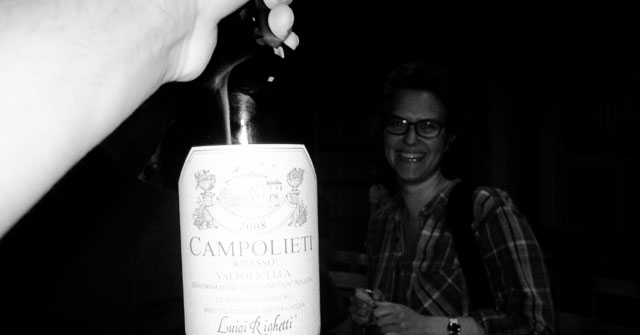— Mateusz, you handsome devil, what is it that you do for a living?
I get this question more often than you’d think, even though the phrasing might be slightly different. My mother, for example, might sigh “Have you got a proper job yet?”
Every once in a while I go through an identity reassessment, especially when sketching a new version of the blog or a business card, or when I stumble upon a piece of insight like Merlin Manns “Watching the Corners: On Future-Proofing Your Passion” — the premise of which is that we hang our identity on old merits long after those merits have ceased to be relevant.
What got me thinking was my first ever end-of-semester gift I received from the students at Chalmers.

I teach courses in photography at community collages in Gothenburg (Folkuniversitetet & Medborgarskolan), and I work as a guest tutor at the international Master of architecture and urban planning studios with Ana Betancour at Chalmers and KTH, teaching people how not to fuck up public presentations, discussing the value of film as an analytical tool in architectural practice and generally asking future architects stuff which I wouldn’t ask if I’ve had architectural schooling.
Many of them don’t seem to know why they want to be architects, nor is there any consensus regarding what an architect does, so the area is ripe for someone like me to come in and ask what they think they are doing — it’s great fun.
The photography courses present a rather mixed crowd, from people who’ve taken pictures their whole life and who just want to learn the digital end of it, to people who’ve become parents and want to document their toddlers with the shiny dSLR the friendly salesperson sold them. I draw diagrams of focal length and JPEG compression algorithms.
That’s the tofu and potatoes of my life, and it’s pretty awesome. Teaching keeps you on your toes and I’ve learned to draw on the eclectic knowledge I’ve amassed, working with people to reach interesting conclusion and alternative angles to problems. The work description could be “talking with people” but in my more interesting moments, and with enough caffeine pills, I become an apophenic Eliza, channeling the on/off-lined world.

I haven’t done freelance media work for a while, but should anyone want to give me money for recording their seminar, proofread their dissertation or photograph something I could give references and manage it. So the question of how I make money is easy enough to answer, but the problem arises when it bleeds into my understanding of who I am, especially when there’s a discrepancy.
For example: I’m not paid to do art. I occasionally apply for grants, which in a sense amounts to spec work, and I do art works and publish them on/off-line, but I’m not getting paid for it. I do it, and my formal art-education opens up related fields (e.g. the urban architecture courses) but it’s not my livelihood per se. I know that this shouldn’t bias me against seeing myself as an artist, but I have always had the notion that one is in part one’s job description, and ones job is the thing one does for money. So if you describe yourself as someone who does something for which you’re not getting paid, the jump to describing yourself as monetarily worthless isn’t big. It’s a way of thinking which is hard to shake.
All this doesn’t interfere with what I actually do, as I’m doing more art now than before, but it’s a shift in perspective which I’m adjusting to.
I’m in the same situation. I am a scriptwriter, but it was a very long time I got any money for doing it.
(Actually I’ve only been paid once for something I’ve written and that was 2 years ago)
But I still call myself that because it sound better than discribing all the other stuff I do to make money. I believe the only one who cares if I get paid for writing or not is me. And I am worthless (because I don’t get paid for what I do) so I don’t have listen to myself. Nice.
Hah, good point that. There’s a time-travel paradox in there somewhere though.
Perhaps there just needs to be another verb to describe ones professional identity. Saying “I work as a waiter but I’m really an actor” doesn’t really cut it. What’s the alternative to “to be” which one might use? (not to be does not count)